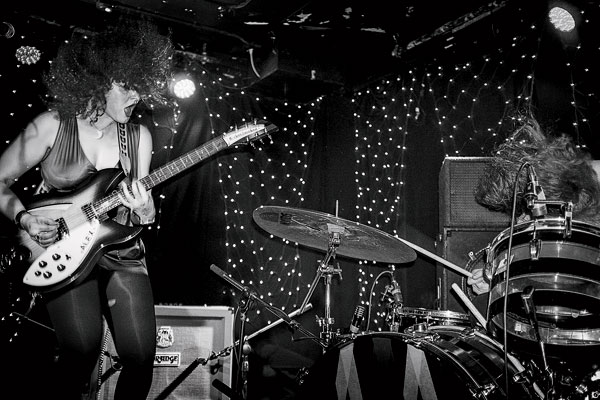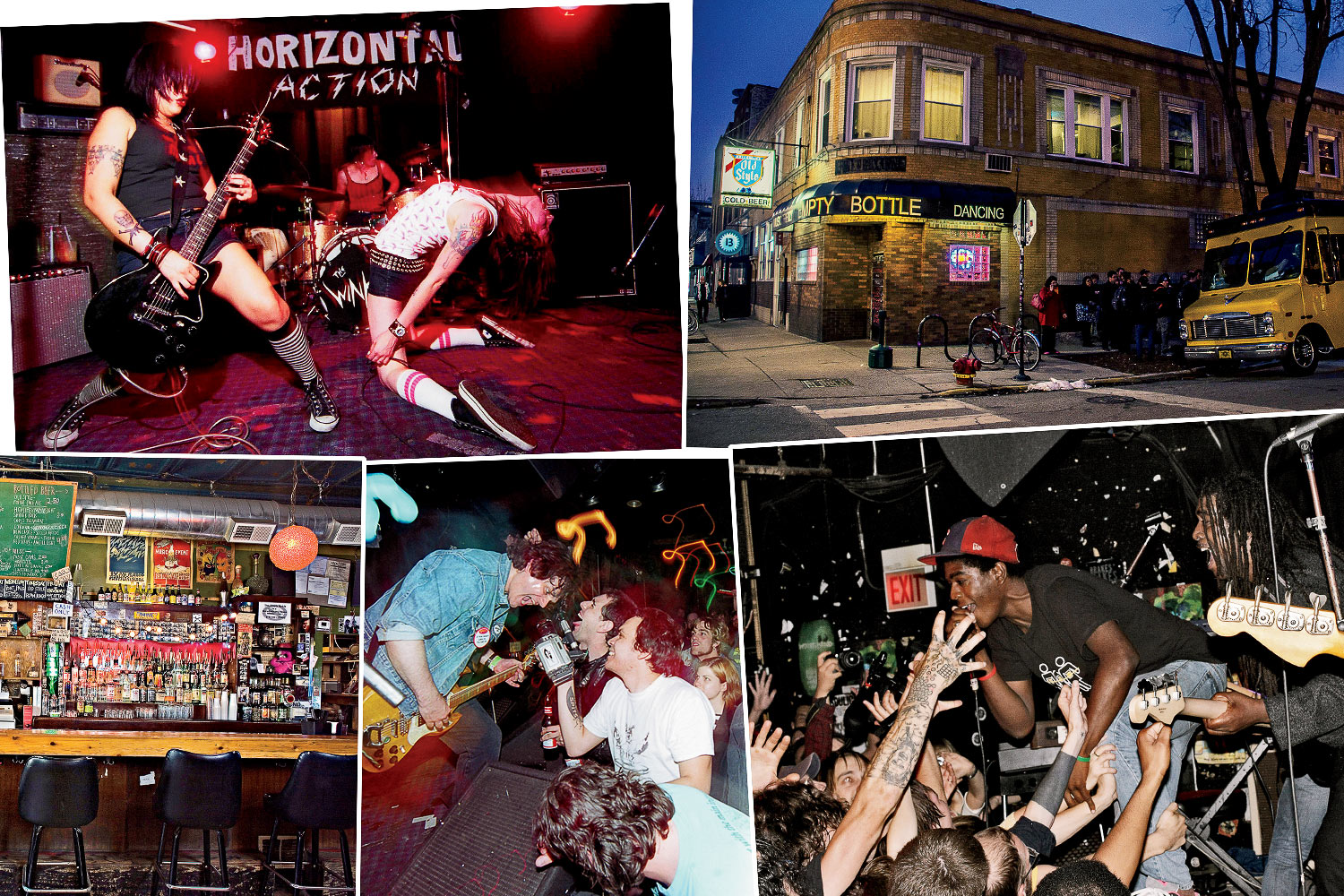Having passed the legal drinking age, the Empty Bottle—the beloved Ukrainian Village venue that helped turn Chicago into a rock ’n’ roll town—is the subject of a lovingly curated collection of interviews, essays, photos, posters, and personal memories released this month. With contributors ranging from Flaming Lips drummer Steven Drozd and novelist Joe Meno to fans and bartenders, The Empty Bottle Chicago: 21+ Years of Music/Friendly/Dancing (Curbside Splendor, $35) celebrates a “mosaic of different viewpoints,” in the words of its editor, music writer John Dugan: “[The book] shows how the club was instrumental in exposing certain genres to the audience—to Chicago—and making it possible for artists working in those genres to do their thing.”
Read on for six stories from the book.

Bruce Finkelman
Owner of the Empty Bottle
The building was coming up for sale on Western Avenue in 1993 [two years after the Empty Bottle originally opened in a rented space a couple of blocks away]. It was the Friendly Inn, but it was affectionately known by the community as “the Bucket of Blood.” It was real bad. There were a lot of gangs there and a lot of weird shit happened. I was signing some papers to drop off with the owners, who lived there. They lived above the bar. I said, “Just hold on a second, I’m going to run in. I’ll be out in a second.” So [my buddy and I] parked right in front. We looked across the street and there are two guys sitting in a car. This other car pulls up, about eight dudes pile out, all with baseball bats, and they beat the shit out of that car [that was parked there]. And my buddy turned to me and he’s like, “You sure you want to do this?”
John Darnielle
Lead singer of the Mountain Goats
You remember the people who treat you well on the road. You remember them your whole life. They are the ones who give you the confidence to keep going, in the hopes that you’ll find more people like them. We lucked out, because we played the Empty Bottle early on [in 1993]. We were treated like stars in a town far away from our home [in Claremont, California]. It meant a great deal to us. … For me, the Empty Bottle’s open-arms policy felt emblematic of Chicago as a whole: Nobody treated me like an outsider. I was told that any time I wanted to play at the Empty Bottle, all I had to do was say the word.
Steven Drozd
Drummer of the Flaming Lips
The Lips were on a real high right at that moment [in 1994]. We had done the second stage on Lollapalooza and it seemed more and more people were starting to get us. Chicago had already been a second home for us, so I was really excited about that show [at the Empty Bottle] in particular. I also remember we did a slightly different set list than usual, so it would be extra special for the hardcore fans that saw us over and over again.
Gregg Gillis
The DJ known as Girl Talk
I had played the Empty Bottle in September 2006, but this crowd [during a New Year’s Eve show that same year] was definitely on a different level. I started my set by lighting some sparklers taped to a broken laptop, which was crowdsurfed through the venue. I did a remix of various versions of “Auld Lang Syne,” and within a few seconds, the stage filled up with audience members. [Bruce Finkelman] was worried about the stage collapsing. The show walked that fine line between chaotic fun and potential disaster. In the end, there was no major damage and Bruce gave me some Playboys when we settled up.
Tim Nordwind
Bassist of OK Go
It was everybody’s home away from home [in the late ’90s]. We all hung out there at least five nights a week, either watching each other’s bands or watching some band called the White Stripes from Detroit. I basically lived at the Empty Bottle. We were huge fans of Elliott Smith at the time. Figure 8 [Smith’s acclaimed 2000 album] hadn’t come out yet, but he was doing an advance tour of acoustic shows around the country [including at the Empty Bottle] and we begged Bruce to let us open. We did a cover of Smith’s “Clementine,” hoping that he wouldn’t be pissed off. We did a big shoegaze-y, wall-of-sound version. But it was really cool for us because the Bottle isn’t very big. There’s only one basement dressing room, and we shared it with Elliott, our hero, which meant that we got to hang with him for a bit, and he was really wonderful and very sweet. That was huge for us.
Tim Rutili
Lead singer of Red Red Meat and Califone
The first New Year’s Eve we played, we were all downstairs in the green room. It was, and I imagine it still is, a grimy basement room with a cooler of beer and cocks, balls, and band bullshit Sharpied all over the walls. There was a moldy couch and a large, hideous orange vinyl pillow. [Friend of the band Tim] Loftus cut open the pillow, pulled out the stuffing, and safety pinned it together like a diaper. We played a set and took a break to count down to midnight. Tim came onto the stage with a girl wearing a Santa beard. He was pale and naked and had the orange vinyl diaper barely covering his ass. I don’t know why, but I remember noticing that his skin and hair looked sticky and I didn’t want to touch him. That was our Father Time and Baby New Year.



